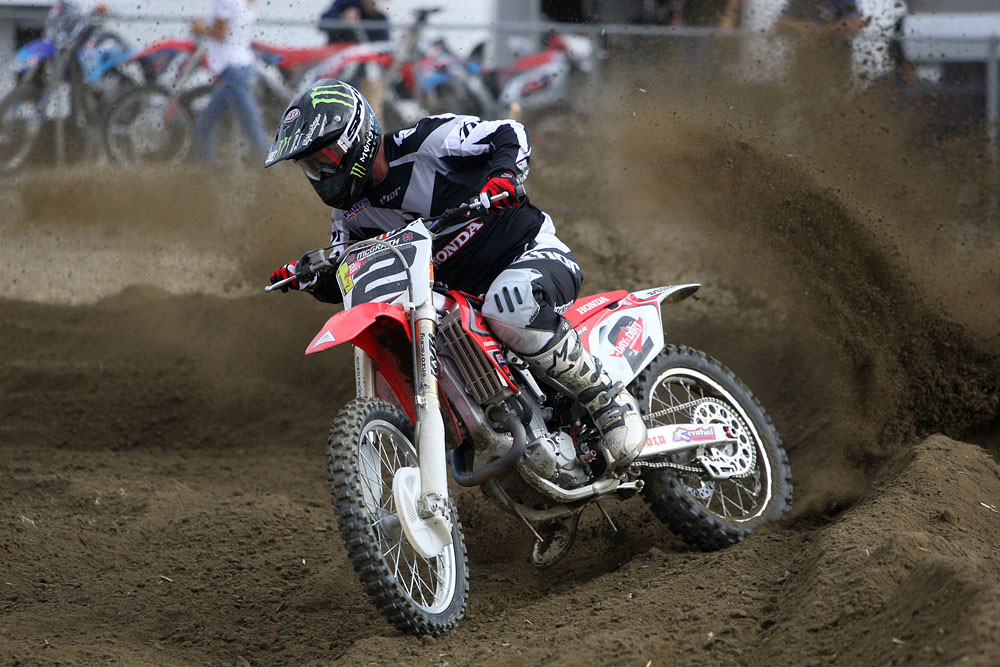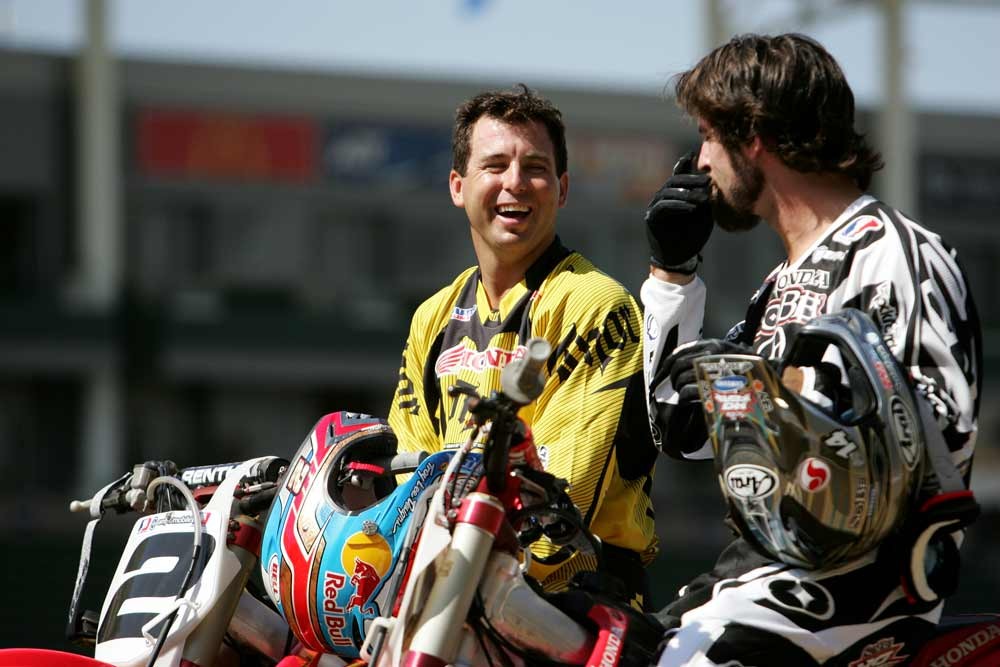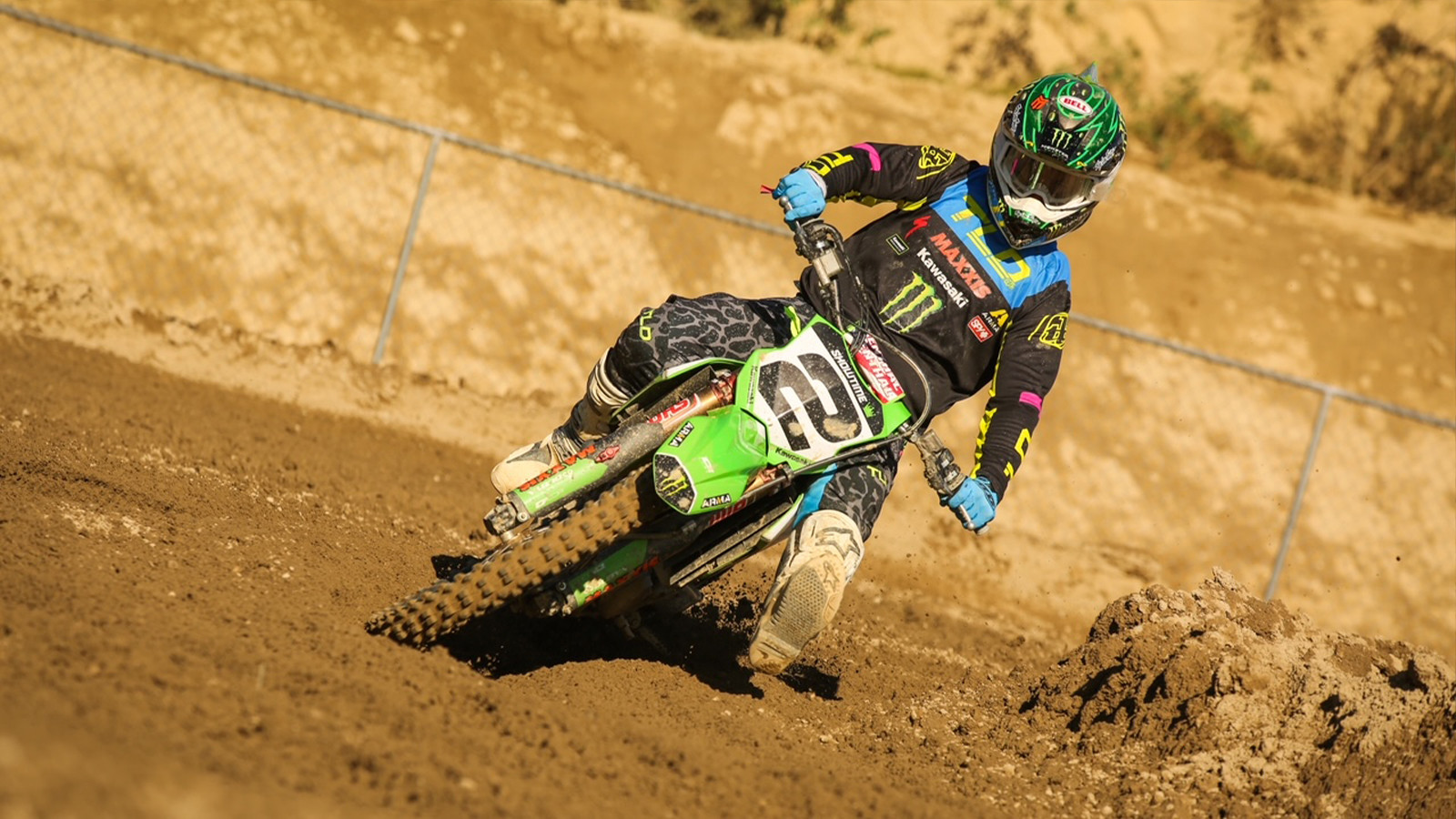There are many lessons learned from racing motorcycles. Responsibility, work ethic, determination, and sportsmanship are a few core examples many of us have learned through our years of riding and racing. With Lessons and Reflections, we want to hear from past professional racers and have them reflect on their careers so they can tell us five lessons that impacted them and helped them post-racing careers. These lessons may impact them in business, relationships, personally, or others. In this edition, we talk to the King of Supercross, Jeremy McGrath. MC accomplished a lot in his career, including a record-high 72 AMA Supercross wins, an AMA Pro Motocross Championship, and seven Supercross titles.
For the full interview, check out the Vital MX podcast right here. If you're interested in the condensed written version, scroll down just a bit further.
Lesson #1
It's so funny. The greatest thing about the sport of motocross is you get to meet so many great people. If you keep your ears open and listen, you get all these great experiences from the people you meet. The sport has provided a life that I would have never imagined I would have. There are a lot of lessons and reflections, and I do a lot more reflecting these days than getting lessons. The older you get, the more your memories fade and the recollection of how things happened. So, it's fun to think about. I love getting together with former riders I raced against because they have different memories. I did a lot of growing up. As far as lessons, when I was 18 or 19, I was a lazy kid. Yeah, I could ride my dirt bike and all that, but I wasn't willing to put the needed work in. So, the first lesson I learned was how to be more disciplined. I was on the tour for about three years before I got disciplined and realized that with your work, you get about ten times more on the exit. I wasn't into that as a 19 or 20-year-old kid. I was like, "I've got it figured out." I thought I did, but I didn't. You have to put the work in. Now, everything I do has to be 100%. As a former racer, you kind of look at everything in life like a race. That's just the nature of the business. I've raced my whole life, did it for a living, and you treat everything with the mindset as if it's a race. So, that has definitely carried over into post-racing life.

Lesson #2
When discussing discipline it leads to lesson #2 because I learned how to grow up and grow up fast. Most kids at that age have no clue where they're going, what they're doing, or what the outcome might be. Learning how to grow up was certainly number two. You learn how to interact with adults and do adult things, especially when you're doing well. You have contracts you have to deal with, you have relationships, and there are a lot of things that go with Supercross and motocross. We didn't have agents. That was the era of doing it by yourself, and a lot of it was trial and error. The good thing I had going for me at the time was I was winning a lot. So it was easy to negotiate. I didn't have to sell someone a bad product. It also allowed me to learn. I could make mistakes and figure them out because my riding would take care of them. You had to do adult things pretty quickly as a kid.
Vital MX: You were making a lot of money, and it could easily have gone in a negative direction. Thankfully, you have great parents. Now, with you having daughters and they did some racing, you can pass that along to them. It's not all fun and games.
MC: Yeah, it's a little different. I have girls, so I don't think you can be as hard on them. You know how it is when you have kids, though. You're constantly talking and telling them repeatedly that it means something to you. Eventually, it will kick in when they're 25 years old, and they will say, "My dad was right on that." I know that's what happened to me. My dad was pushing me hard in a loving way, but it was pretty hard. When you're a kid, you think it's such a pain, and you think you know everything, and you don't want to listen to your dad. At 25, I said, "Yeah, my dad was right." You end up coming back and using those lessons. It's all part of growing up, but the last thing you want to do is listen to your parents. You kind of feel like a butthole when you're teaching your kids these lessons, but you have to stick to your guns. I do the best I can, and I try to use some of my parent's methods they used on me.

Lesson #3
I was always interested in the business side of the sport. I think I'm good at that because I always pay attention, and my parents helped me through that initially. As I got older, I started doing that stuff myself, and I had a CPA/manager named Dave Stevenson who taught me many lessons regarding contacts and things like that. Again, I think I was fairly grown up at a time when I could have been immature. That for sure has carried through my life because now I have a Rolodex that is super deep, great relationships, and I can call anyone in the sport. I can give and receive respect, and I think those are some lessons that some of the younger guys are getting or having to pay attention to because they have someone speaking for them. One of the downsides to the sport is that the kids don't have to grow up and do things for themselves because they have managers and agents. So, when they are done racing, I think they will be at a major disadvantage. There aren't many of us who get to retire from this sport and make our own work hours or not work if we don't want to. Most of these kids have to return, find a life, and do something else. Those kinds of lessons were very valuable for me.

Lesson #4
The sport taught me to be more open and outgoing. I was kind of shy when I was younger, but communication became key as I got older and better at negotiating and talking to people. When setting up your bike, you have to talk to your team. Not only your team but a specific team of four or five guys who can help you go fast. You need to be able to communicate and pass along messages to let them know what you are or are not feeling. It's with the bike setup, the fans, and whoever you interact with. Again, the kids get a bit jipped on this in today's world. A few are pretty good, but we know the ones that aren't.
Vital MX: Communication also becomes important later when you get married or have a relationship.
MC: It is kind of the same thing, but the repercussions are different. I think I'm a little better at communicating with strangers because there are no real repercussions. Sometimes, the relationship gets tricky. I've been married a long time, and it's going great, but there have been times when I wasn't the best communicator. Guys think everyone knows what they are thinking, and women do, too. Communication is key, allowing you to see a softer landing zone when situations arise.

Lesson #5
My fifth one is dealing with media. I learned early on that you need to be friends with them, and they are your ally. Maybe because Dave Despain, Larry Myers, and those guys back then were so friendly and easy, but I enjoyed talking to those guys. I think it's all about respect. If you give respect, you'll get respect. I was friends with the guys flagging the race and announcing the race. If you respectfully deal with people, even people you don't know, your pathway will be easier.



